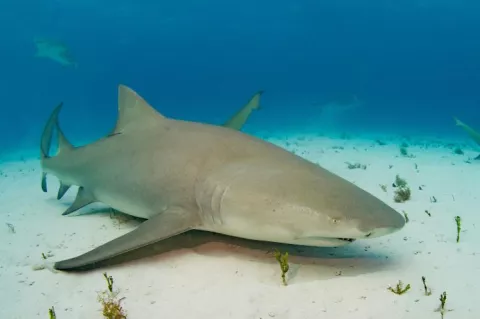Innovative Project Aims to Reduce Shark Bycatch
In La Réunion, an island in the Indian Ocean that is an overseas department and region of France, small-scale fishers often use surface longlines targeting tuna and billfish, but this sometimes leads to the accidental capture of sharks.
The EU-funded ASUR project is researching innovative methods to reduce the incidental catch of sharks by these longlines, bringing together scientists and fishermen to tag and release sharks and to test equipment designed to reduce shark mortality.












